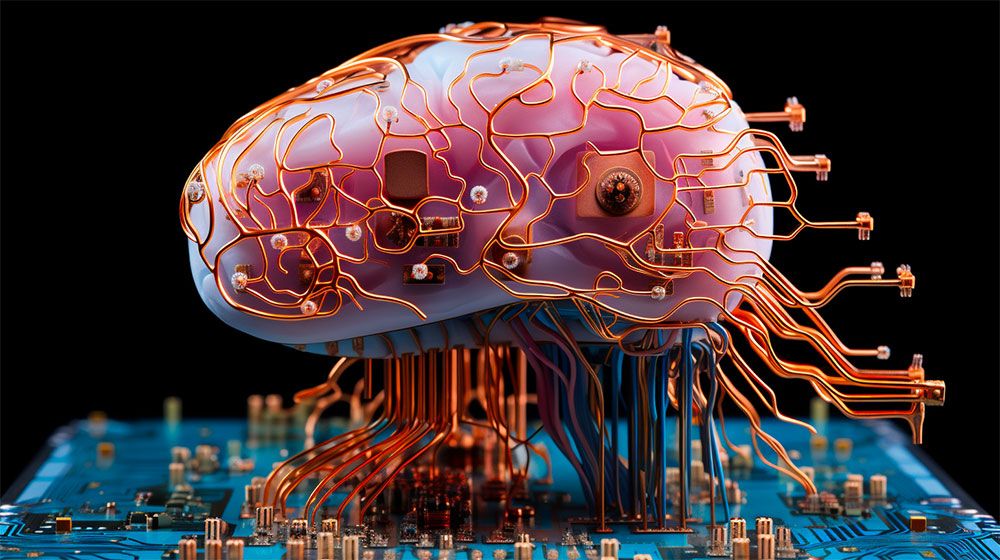Introduction to Human-Tech Fusion
Imagine a world where your thoughts could directly control technology. A reality where the boundaries between human cognition and artificial intelligence blur into an unrecognizable fusion. This is not the stuff of science fiction anymore; it’s becoming our future. As we stand on the brink of remarkable advancements in transhumanism, brain-computer interfaces (BCIs) are leading us deeper into this new era. With neurotechnology evolving rapidly, possibilities stretch beyond just enhanced communication—they touch upon concepts like digital immortality.
This journey through human-tech fusion raises exciting questions about what it means to be human in a digitally interconnected world. From how we interact with machines to contemplating life after death through consciousness preservation, we’ll explore all facets of this transformative landscape. Buckle up as we delve into the cutting-edge developments that promise to redefine our existence!
The Evolution of Brain-Computer Interfaces (BCIs)
The journey of brain-computer interfaces (BCIs) has been nothing short of fascinating. Initially conceived in the 1960s, these devices emerged from a desire to understand and interpret brain signals.
Early experiments were rudimentary at best. Researchers used basic electrodes placed on the scalp to capture electrical activity. Despite their limitations, these initial efforts laid crucial groundwork for future advancements.
As technology progressed, so did our understanding of the human brain. Breakthroughs in neurotechnology have allowed for more sophisticated methods of signal extraction directly from neural tissue. This evolution opened doors to myriad applications—from medical uses like restoring movement in paralyzed individuals to enhancing cognitive functions.
Today, BCIs are entering mainstream conversations about transhumanism and digital immortality. As we refine this technology further, it’s hard not to wonder how deeply it will intertwine with our everyday lives and reshape what it means to be human.
Advancements in BCI Technology
Recent breakthroughs in Brain-Computer Interface (BCI) technology are transforming the landscape of neurotechnology. Researchers have developed devices that can decode brain signals with unprecedented accuracy. These advancements allow for more intuitive communication between humans and machines.
One notable innovation involves wireless BCIs, which free users from cumbersome wires and enhance mobility. This feature is particularly beneficial for individuals with disabilities, enabling them to control prosthetic limbs or communicate through thought alone.
Moreover, machine learning algorithms are playing a pivotal role in improving BCI performance. By analyzing vast amounts of data, these systems can adapt to individual neural patterns over time.
The integration of virtual reality with BCIs is another exciting frontier. Imagine experiencing immersive environments purely through your thoughts—this could redefine gaming and therapy alike.
As progress continues, we stand on the brink of merging human cognition with advanced technology like never before.
Potential Applications of BCIs
Brain-computer interfaces (BCIs) offer a vast array of potential applications that could revolutionize our daily lives. Imagine individuals with paralysis controlling devices through sheer thought alone. This advancement opens doors to independence and empowerment.
In healthcare, BCIs could enhance rehabilitation for stroke patients. By connecting the brain directly to robotic limbs or virtual environments, recovery may speed up significantly.
Education stands to benefit as well. Customized learning experiences tailored to individual cognitive responses can transform classrooms into dynamic learning environments.
Even gaming is evolving through these technologies, creating immersive experiences where players interact with the game world using their minds. The possibilities extend far beyond entertainment and therapy.
Moreover, researchers are exploring how BCIs can facilitate communication for those unable to speak due to illness or injury, bridging gaps in society and fostering connection among people facing challenges.
Ethical Considerations and Concerns
As brain-computer interfaces (BCIs) advance, ethical concerns loom large. Who owns the data generated by our thoughts? The potential for misuse is significant.
Privacy becomes a paramount issue. Direct access to thoughts and emotions raises questions about consent. Can individuals truly agree to share their cognitive information?
Moreover, there are fears of inequality. Will only the wealthy gain access to these technologies? This could widen societal gaps further.
The idea of modifying human cognition also begs scrutiny. Are we tampering with what it means to be human?
Additionally, reliance on neurotechnology might diminish personal accountability. If machines influence decisions, where do we draw the line between choice and manipulation?
These dilemmas demand thoughtful discussion as society navigates this brave new world of transhumanism and digital immortality. Our approach must balance innovation with moral responsibility.
The Concept of Digital Immortality
Digital immortality is a captivating concept that explores the potential for human consciousness to transcend physical limitations. Imagine a future where memories and thoughts can be uploaded, stored, and accessed indefinitely.
Advancements in neurotechnology are paving the way for this possibility. The integration of brain-computer interfaces enables us to interact with digital environments intimately. This fusion could allow our essence to live on beyond biological death.
Yet, what does it mean to exist eternally in a digital realm? Some argue that maintaining consciousness without a body could lead to an alienation from humanity itself.
Questions about identity arise: Is a digital avatar truly “you”? Or is it merely an echo of your personality?
As researchers delve deeper into these questions, society grapples with the implications of such profound changes—transforming how we perceive life, death, and what it means to be human.
Possibilities and Limitations of Achieving Digital Immortality
Digital immortality captivates the imagination. The idea of existing beyond our biological constraints is exhilarating. But how close are we to realizing this dream?
Advancements in neurotechnology offer pathways for preserving consciousness. Uploading memories and experiences into digital environments seems plausible with current innovations. Imagine interacting with loved ones long after physical death.
Yet, challenges abound. Capturing the entirety of human experience is an immense hurdle. Emotions, thoughts, and personality traits resist easy replication in a digital format.
Moreover, ethical dilemmas emerge as society grapples with identity and memory ownership. Who controls these digital selves? What rights do they hold?
Societal implications raise questions about what it means to be human in an era dominated by technology. As we explore these possibilities, limitations remind us that true immortality may remain tantalizingly out of reach for now.
Impacts on Society and Individuals
The integration of brain-computer interfaces and the pursuit of digital immortality could dramatically reshape society. As neurotechnology advances, we might witness a widening gap between those who can afford such enhancements and those who cannot. This disparity may lead to new social classes defined not by wealth, but by cognitive abilities.
Individuals will face profound changes in identity and self-perception. The idea of merging human consciousness with technology could alter our understanding of what it means to be human. Many people might grapple with existential questions about their essence and existence.
Workplaces too will transform as enhanced individuals enter the job market. Skills previously seen as unattainable may become commonplace, pushing traditional roles into obsolescence.
Moreover, relationships could evolve as communication becomes instantaneous through thought alone. New dynamics may emerge, challenging long-held notions of intimacy and connection among people.
Future Predictions and Speculations
As we look to the future, the landscape of human-tech fusion is filled with both promise and uncertainty. The rapid development of neurotechnology and BCIs suggests a society where merging human consciousness with machines may become commonplace. Imagine a world where thoughts can be transmitted directly between minds or memories stored in digital archives for easy retrieval.
Experts predict that as this technology advances, it could lead to significant enhancements in cognitive abilities. Humans might gain access to vast amounts of information at lightning speed, effectively transforming our learning processes. This shift could elevate problem-solving skills and creativity beyond current limitations.
However, alongside these advancements lies a complex web of ethical challenges. Concerns about privacy will likely intensify as personal thoughts become accessible through connected devices. Moreover, issues surrounding data ownership and consent must be addressed before fully embracing this new frontier.
The concept of digital immortality remains particularly captivating yet contentious. Some futurists argue that achieving a form of consciousness transfer could redefine what it means to live forever—no longer bound by biological constraints but rather existing within an endless virtual landscape. Yet questions arise: What happens to individuality? How do we navigate relationships when one’s essence resides in multiple places simultaneously?
Transhumanism advocates envision a society liberated from physical decay and suffering—a utopia powered by continuous technological evolution. Others warn against potential disparities; not everyone may afford such upgrades or have access to life-extending technologies.
While the path forward is rife with innovations poised to revolutionize existence itself, careful reflection on ethical implications will shape how humanity embraces its own transformation into hybrid beings—whether through enhanced capabilities or the tantalizing prospect of living digitally forever.




